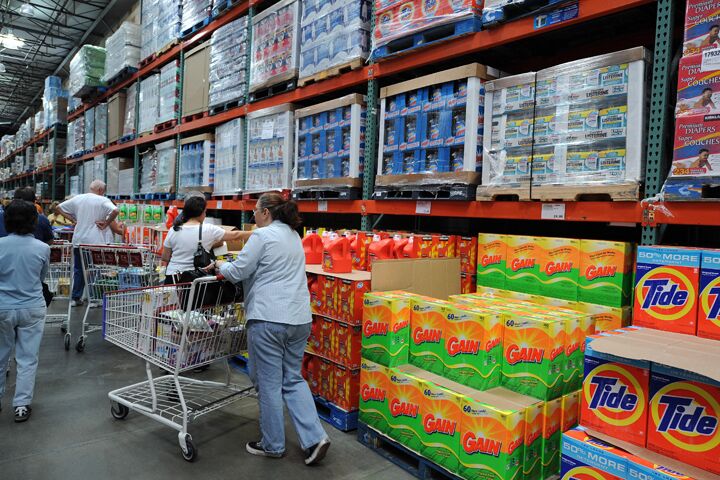
Prices Surging for Oil-Based Goods
Less than half of every barrel of crude oil extracted from the ground is refined into gasoline. The rest of the barrel is used in the production of an estimated 57 other major types of goods—goods like kerosene, asphalt, antifreeze, cleaning fluids, laundry detergents, paint, pharmaceuticals, cosmetics, hygiene products, diapers, dvds, plastics, and even the waxes in chewing gum. In the form of petrochemicals, oil is the key ingredient in thousands of other products. Because of this heavy reliance on petroleum for a vast variety of uses, the effects of high oil prices are spreading well beyond the gasoline pump.
“Not quite half of what we consume is energy, food, and other commodities that are significantly affected by the rising cost of petroleum,” says Mark Zandi, chief economist at Moody’s Economy.com.
In the last 10 months, crude oil prices have increased from $74 a barrel to $134 a barrel. Because of this, the price of asphalt has already increased 65 percent this year and Dow Chemical has announced a 20 percent across-the-board price hike on all of its products—which range from antifreeze to cleaning products to pharmaceuticals. Other companies, like Procter & Gamble, Clorox and Kimberly-Clark, are following suit and raising the price on a variety of their products by 4 to 13 percent.
The skyrocketing price of asphalt means that road construction and repairs are becoming much more expensive. Highway contractors are already saying they are reducing the number of projects planned due to increasing costs. Bumpy roads may just be a fact of the future.
Retailers cannot absorb all of the increasing costs of production; they have to pass a portion of them on to consumers. That means as oil prices rise, a wide variety of goods are going to get a lot more expensive for the average consumer. As Ann Paulins, director of the School of Human and Consumer Sciences at Ohio University in Athens, warns, “It’s just the tip of the iceberg.”
In America, trends like this only serve to decrease consumer spending, which currently accounts for approximately 70 percent of the nation’s economic activity. Rising oil prices could easily drive America into recession. For more information on ramifications of rising oil prices, read our September/October 2004 print edition article “Black Gold.” See also “The First Oil Shortages” and “Can Saudi Arabia Boost Oil Production?”
